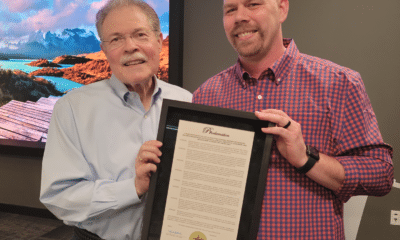Around Atlanta
Capitalist Sage: Brennen Dicker on the Business of Film Festivals [Podcast]
Published
5 years agoon
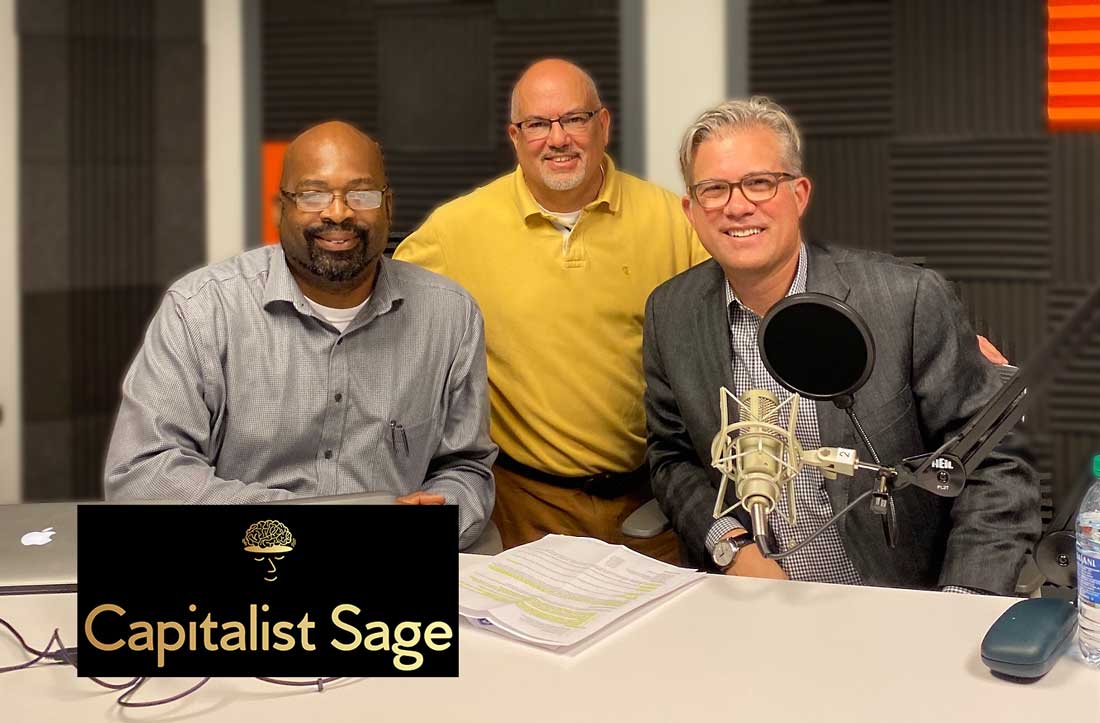
In this episode of the Capitalist Sage podcast, Brennen Dicker, board member of the upcoming Atlanta Jewish Film Festival shares with hosts Karl Barham and Rico Figliolini all the ins and outs of how this fantastic film fest got started and details about the exciting events to come in 2020.
Resources:
Website: AJFF.org
“…What I really enjoy about this festival is that it is a time to get people together and converse and talk about issues that a lot of times people don’t… want to talk about, or they just haven’t had the time to actually sit down and talk to each other. You find so many more similarities through a cinematic experience… or you learn something new about an individual or a particular community.”
Brennen Dicker
Atlanta jewish film festival, Board Member
Podcast Transcript
Karl: [00:00:30] Welcome to the Capitalist Sage Podcast. We’re here to bring you advice and tips from seasoned pros and experts to help you improve your business. I’m Karl Barham with Transworld Business Advisors, and my co-host is Rico Figliolini with Mighty Rockets, Digital Marketing, and the publisher of the Peachtree Corner Magazine. Hey Rico, how’re you doing today?
Rico: [00:00:47] Hey, Karl. Excellent. Thank you.
Karl: [00:00:49] Why don’t we introduce our sponsor for today?
Rico: [00:00:51] Sure. Atlanta Tech Park here in the city of Peachtree Corners, actually in Tech Park Atlanta. Kind of fun of the way that wraps that one, but we’re in this place they let, the Tech Park is an accelerator different from an incubator. But it’s a great place to think of. We work in an acute, better environment, so lots of tech companies here. This podcast studio that we’re working out of as well as, as events that they put on here, like big technology showcases, film festivals, all sorts of different activities. The Asian film festival kickoff here, launches in the Southeast. They had the FinTech event that happens here. So just, you know, and more and more. Lots more to come. So a great place to network, meet entrepreneurs, people. And the local business community, and if you go outside, you can flash your phone and get a ride on Ollie, the driverless shuttle that takes you up right now in Peachtree Parkway. So just, it’s a great place to stop by and visit, especially if you want to get into the entrepreneurial business community in Peachtree Corners.
Karl: [00:01:55] Right. Absolutely.
Karl: [00:01:57] Well, today we are excited, to, to talk about film festivals (and) the business of film festivals and what that’s like. And we’re honored to have our guest today, Brennan Dicker, who was a board member of the Atlanta Jewish film festival, which is coming up in early January, or May actually.
Brennen: [00:02:17] Start is February 10th. Tickets go on sale January 27
Karl: [00:02:22] And so we’re going to talk a little bit about what it’s like to put on a film festival. How it helps the community, some of the business of that. But why don’t we start off by you telling us a little bit about yourself.
Brennen: [00:02:33] Sure. My name is Brennan Dicker. I, my day job is the executive director of Creative Media Industries Institute for Georgia State University. And that’s where I teach approximately 900 students. Media entrepreneurship in game design in four year programs there. And I’ve been very fortunate just to be a member of the film intelligent community here in Atlanta for the last 15 years. I started in film and television 30 years ago at 16 as a running in as an intern, getting coffee for producers and I was fortunate enough to make a career out of that. And I spent some of my time in Chicago creating my own production company and doing a lot of
work there in sports and Commercial work as well as a PBS documentaries. And then was fortunate enough to come down here to Atlanta and get tied into more of the post production world of the business and production. And then, you know, just all of what I was doing on various boards. I sat on the board of Savannah College of Art and Design, the advisory board for them, and shared their advisory board as well as Georgia Production Partnership, which does a lot of work shared with them. And then I got a call one day to join a JFF 10 years ago, and it was just a wonderful opportunity and a wonderful community to work with.
Karl: [00:03:52] Fabulous. I noticed, you know, you’ve been along the ride as in Georgia, the film industry has exploded. How does that help the Atlanta Jewish film festival, you know, gain people and improve over the years?
Brennen: [00:04:11] Well, I think, you know, from my perspective and with the Film Intelligence Senate that happened in 2008 that brought in a lot of people from Hollywood and New York and all around basically all around the country to come in. And so people are looking for things to do. And you know, in the film community, a lot of people that are, you know, directors of photography, various crew members, you know, it gives them an opportunity to actually go and see some of their friends films. And I’ll be at an AA, JFF or one of the other film festivals in the state as well. But it’s just a wonderful opportunity to bring those people into our community and show them, you know, really find works and that we’ve got great, a great film festival here, and via one of the largest film festivals, Jewish film festivals in the world. Also the largest largest film festival in Atlanta.
Karl: [00:04:58] Oh, wow. So why don’t we tell people a little bit about the history of the film festival so people get a kind of context.
Brennen: [00:05:07] You know, this was, this is 20 years in the making now. This is our 20th year. I can’t imagine, you know, when, when they started, it was a little less than, I think 800 people that showed up to do a Jewish film festival for a couple of days. It was nothing like it is now at 18 days. Festivals started, that in itself was, you know, as it grew through the years. It was you know, a very slow growth process. But I will tell you that Kenny Blank is the executive director. Kenny had a goal of wanting to make JFF, one of the largest film festivals, not only in the state in Georgia, but also the largest Jewish film festival in the world. And he told me this 10 years ago, and, you know, I thought, you know, this guy has a plan. And he had a plan with this committee. A steering committee to make it work. And so he moved in that direction and we were able to, a couple of years ago, say that we were the largest Jewish film festival in the world. Now we compete with the San Francisco Jewish film festival, and it’s always seems to be going back and forth on numbers. But just to have that growth, that phenomenal growth and also a community that backs it is so important. And you know, we just, we were able to get the right people involved. And I think the right people have been involved from the beginning. Of you know, making, creating a foundation for the festival and creating awareness about the festival because really the half is really a cinematic exploration of the Jewish experience. And I, you know, first and foremost, and I think that, you know, with a strong Jewish community that we
have in Atlanta, that’s one thing. But then what we’ve tried to do, especially in the last decade, is branch out into other communities because it’s all about storytelling. You know, whether it’s a comedy, a drama, and people can associate with the films. And I think that’s why it’s been so successful because over we, I think we have 25% now that are non-Jewish and they’ve come to the film festival. They see something there and they, they see stories and they see good storytelling. You had films and so there are so many people drawn into this film festival every night.
Rico: [00:07:11] Absolutely. One of the things that, that I know has been a positive experience for me. I’ve enjoyed film festivals for years. I grew up in New York and they had a lot of film festivals, but it was one of the great ways to explore other cultures and stories and see it in a creative way. Here in the Metro Atlanta area, I don’t know, if plenty of people realize that they have this access to storytelling and art. That’s, that’s here. What would you say for folks that have never visited there, what would that experience be like when they come and visit the film fest?
Brennen: [00:07:46] Well, I think that it’s one of, you know, obviously a traditional film festival. We have the speakers that come, we usually have a producer, director tied to a lot of the films that are coming, or an actor or an actress. And so that in itself is, is great to have a Q&A when you actually have a personal experience going on. But one of the things that we’ve prided ourselves, especially in the last couple of years, is making it an experience at the theater. So you may have a, you may have a film, like we did last year called Judaism, which was a taste of Montreal where a documentary on these two Jewish guys that went around talking about various places to eat in Montreal. And then after the screening, we all had bagels. We all had, you know, various foods that they were talking about, which was a fantastic way to tie it together. But you have to make in many respects now. We don’t do that with every film, obviously, but there are many things that we try to tie in with the, with the festival, be it music, food, culture, great speakers, just people that come in because you have to really make this an experience for your audience now because your audience has many choices as to where they, where they, where they can get their entertainment. And so it’s not like, let’s say in the 90s. When in the Indies were so big and festivals were so big where you would go out because you couldn’t see these films on Netflix or Hulu or Amazon because there were no Netflix, Hulu or Amazon. So you had an experience where you knew people were going to come out, but now you really have to really be savvy with your audience and make sure that you’re targeting the right people for this and making it an experience.
Rico: [00:09:24] How does, Netflix has the streaming work with that because, I mean, are all the films not online or some films online, but then they’re at the festival also?
Brennen: [00:09:33] Yeah, I, you know, it depends year to year, but you know, obviously we’ve had, I think over 30 world premiers. I think that that was it as far as what we were looking at. And so with that, there’s going to be some films that are better that are already streaming, but for the most part, we’re trying to get films that are, you know, first run, or at least that year that
this their first run. But there are films out there that will stream and you know, people could go see them. Obviously, we’d like to have them come to the festival and have that experience like with the food or people talking to those. You know, you’d like to hear how the director got to that story. That’s one of the beauties of, you know, coming to the festival is, you know, after the, after the film is done and to have an app, a Q&A with the, with the producer or the director, or the actor, that actor or actress that was a part of that. That’s a huge, huge deal for us.
Rico: [00:10:23] I think some people don’t even understand that the Jewish film festivals that, you know, they might think Jewish Israel. Films come from all over the world, all different languages.
Brennen: [00:10:33] Exactly. And it’s amazing, all different themes. I mean, we have films that are, you know, from South America, from Africa, from Asia. It runs the gamut and, and that, and I think that what I pride myself in on specifically with the festival is. We’ve had such a good job of film selection over the last couple of years, and it gets stronger each year. That you just, you’re blown away by all of the films that are there. I mean, it’s not, you’re not just talking about two or three films out of 60 or 70 that are good. You’re talking about all of them have been selected out of, I think we had, I think 700 films last year that out of 70. So you only a 10% that were actually submitted. It was, it was a ridiculous amount of films that actually gets submitted. But that that has really given us a quality that we just have never seen.
Rico: [00:11:27] Are there film fees that people have to, that are paid for the submission for entries? Or, no, it’s not, it’s not an entry like. It’s not, there’s no awards at the end. There’s no fan awards or anything.
Brennen: [00:11:38] We’re trying to get to that. I think that’s one of the things we’re trying to do. We do have, and we do have an award as far as the audience award, and we have a jury prize award for that. So there is, as far as entry fees on the films themselves, I’ll have to look into that to see what that, what that is. If there is any it would be, it would be minimal at most if we were to do that, but it is something that we’re now looking at, you know, getting a jury. We had a jury together last year and a student jury as well. So that, that in itself again, and to see who the audience award winner is, we usually try to replay that film later on after the festival.
Karl: [00:12:14] That’s what’s great about film festival. So, new and young filmmakers have an opportunity to get their work shown by more than the traditional Hollywood machine that would dictate. So I could see young people that are interested in film and interested in entertainment being a really strong, big demographic to go after they get there. What are some of the things you do to outreach to younger folks and the families to get them to come to the festival?
Brennen: [00:12:42] We are a JFF. Obviously we have the film festival, which is, you know, our brand there, but we’re really trying to make a year long, you know, experience out of that. And one of the things that we offer as a JFF on campus, and specifically we’ve been working with Emory university the last couple of years to premiere some films on campus at Emory. Now
again, we’re going to branch out to other institutions or colleges and universities around the state to make that even more accessible. But we’ve found it very successful to get, you know, a younger generation of coming into. Just to experience it as some of the, you know, lineup that we’ve had. So that’s one of the areas. And we have a specific group within our steering committee that are really focused on the younger generation, you know, the millennials of getting them and getting them to come out specifically to either one or a couple of our films during the festival, but then have parties during the year that make it an annual all around experience. Because one way that a festival, film festival will survive is to create your own programming. And that’s something that we, along with other festivals that are, you know, that are larger, are seeing that you need to keep it, you need to keep the brand out there and a presence out there. And so how you do that can be through the on campus, what we were talking about. We have Seanna bash, which is more of an art and music exploration in Jewish culture and history with that and where we’re doing art and showing in that way, which is a phenomenal event that we’re looking at continuing this year. And there’s a number of other events through the year that we’re looking at. The just will, it’s touchpoint, so people see what we’re doing throughout the year on its head.
Karl: [00:14:34] So we’ve got a couple of questions around, kind of the process. So you mentioned selection committee. How did that work and how do, what criteria it used? Who are the people that select? How did that part work?
Brennen: [00:14:46] There’s a committee on the steering, the steering committee that’s a selection committee of three or four folks that get together and they will then branch out. There’s a whole group of people who have been doing this now for 20 years now. Again, we’re talking about hundreds of volunteers that come in to this space. And they’re the age, the age ranges, you know on the thirties to seventies, eighties of people that will take the time to actually watch these films. So you have got a broad age range, a broad diversity of people that will take the time to do it. It’s, it is a commitment. You know, they’re watching films on the weekends and they have some, they break it down to where it’s manageable. But even, I think my mother was a part of this and she had to watch 20 or 30 films I think, you know, during this time. Which she loves. But I, you know, having the time to do that is a challenge. But we do have committed volunteers in a community that really is active in narrowing down, you know, the films. But it had, but they have to be watched.
Rico: [00:15:50] That’s similar to the Atlanta film festival, but that’s a side thing. You could actually volunteer to be part of that group that watches, but you have to commit to a certain amount of time.
Brennen: [00:15:59] Yeah. That’s how, that’s how it works. Unfortunately, we’ve just had a lot of people that enjoy the experience and also just getting a chance to see the first run.
Karl: [00:16:08] Can someone volunteer to get the shirt?
Brennen: [00:16:10] Sure. Yes. They can go to AJFF.org and volunteer. Definitely.
Karl: [00:16:15] And then the criteria that would be for next year.
Brennen: [00:16:17] Next year, of course. Yeah.
Karl: [00:16:21] Why? What are some of the things you look at for films that might help influence?
Brennen: [00:16:26] Well, obviously it’s films that are seen through a Jewish lens. And so there’s a, you know, an aspect of having that incorporated within the film is the most important. And it can be, I mean, we’ve done the storyline, but obviously that’s something that has to be a part of who we are. Aside from that, we take every kind of film. We had a horror genre last year, which is a horror film there. That was, you know, just, it was great. But made in Israel, I mean, obviously there are certain films that are coming to us, with different, the different themes. But, it’s a very wide range of films that we would, you know, look at selecting. And we have one from Georgia this year. It was selected as well, a short. Our shorts, by the way, we get, we’ve had a lot of ’em. Really dynamic shorts from younger people as well, just people that are, that are going to come in. And so the short film category, at least from last year, was fantastic. And I look forward to seeing what we have on docket for this year.
Karl: [00:17:24] It may seem obvious, but describe the difference between a short and a feature film.
Brennen: [00:17:29] You know, if you think of a short film you’re looking at probably no more than 20 minutes long. You know, shorter narrative or shorter documentary. Feature films, we always kind of look at them. You know, between, I would say 75 to 90 minutes or over 70 over 75 minutes could, could be a length of a feature. You know, there are exceptions to that rule, but I would say that really kind of tells, that tells the tale as far as what it is. It’s all storytelling. But obviously feature films are a longer, longer length.
Karl: [00:17:59] So a lot of film festivals, there’s a lot of distributors come to find films to distribute. Do that, how does that process work? How do they get involved in that?
Brennen: [00:18:11] Well, we have a number of, obviously we have a number of relationships with distributors worldwide, and that’s how we get the selection of films that we do. You know, I think that in the future with all of the films that are being shot here, you know, the methodology or we’re hoping that we can see more distributors actually be, you’re coming to Atlanta to recognize some of the filmmakers that we have locally here. So it, it’s not, we really have, we reach out to a lot of district distributors worldwide, but I personally would love to have them come to the festival and find films that are, that are being looked at as well.
Rico: [00:18:47] This is less than like, the film festival on the one in Denver. I mean, Sunday, or Sundance rather. Yeah, so you’re not going to find a film where someone’s going to buy 2 million, paid 10 million for.
Brennen: [00:18:58] It’s really the audiences really for the Atlanta and Georgia community, Atlantic community in general. And so that, that’s kind of, I mean, our focus. I mean, when you think of Tribeca, and when you think of Sundance or South by Southwest, there are few, or even Toronto with TIFF, Toronto International Film Festival. Those specific festivals are really for the distribution side of things. And, and quite frankly, a lot of the, you know, the first run films are trying to get in there so they can get distribution. But it’s really, you know, that model is changed quite a bit, you know, with Netflix, with Amazon, with just streaming services in general. So you don’t have a, I mean, we’re seeing a transformation as to how films are being distributed and on various platforms that we don’t even know exist yet. So it’s, indie film is going through a transition right now with distribution, and I think that they’re, not as reliant on Hollywood per se. I mean they are going to these, they are going to the Amazons, the Apples, and trying to see if they can get distribution deals separate from that. I think that we’re seeing that happen right now.
Rico: [00:20:03] There’s so many streaming services with Apple coming out. Then you have Amazon Prime and Netflix. And the smaller ones that do like horror movies only
Brennen: [00:20:10] That’s right.
Rico: [00:20:11] And the streaming that way.
Brennen: [00:20:13] I want to understand that they’re all looking for content. I mean, that’s there. They’re all trying to vibe for that, those eyes. And so it’s important for them to try it. Find that content anywhere they can and if it’s cheaper for them in some respects than actually producing their own content.
Rico: [00:20:26] And what’s interesting, what time was on video at one point, and they don’t just show other people’s like major releases. You can be a producer of your own small little indie film if you are a high school kid even, and you can actually put it up. And people will pay. There’s a process to be able to pay for that viewing of that video inside.
Brennen: [00:20:44] We see that with Georgia state students and students that are going on YouTube, creating their own content, and if they’re getting so many eyes, then eventually they, you know, YouTube will pay them for that. Now again, that you have to be in the tens of thousands or hundreds of thousands of views. But that’s the, these are the models that we’re seeing coming out of this. And it’s a quite, it’s quite a disruptor.
Karl: [00:21:06] What did the impact on the community that you’ve seen the film festival have?
Brennen: [00:21:11] You know, I have seen in the last 10 years, obviously it’s a, you come together with the Jewish community and I, and it’s so well supported, like I said before. But what I’ve also seen is conversations with other organs, with other groups, organizations would be at, we’ve had specific talks with the Muslim community that have come out and shared it in films that we’ve done. And we also have the Hispanic community has been strong as well. So there’s, there’s all these, what I really enjoy about this festival is that it is a time to get people together and converse and talk about issues that a lot of times that people don’t, either want to talk about, or they just, they just haven’t had the time to actually sit down and talk to each other. And there’s a, you know, you find so many more similarities through a cinematic experience, you know, that I think some, or you learn something new about an individual or a, you know, particular community.
Karl: [00:22:20] Do you get a sense of the economic impact? And some of the theaters. Can you tell us a little bit about the theaters in the area that, that host this and the impact that that has meaning?
Brennen: [00:22:30] Yeah, it’s well, obviously we have over, you know, close to 40,000 that come to see the festival in an 18 day period. So that alone, as far as the economic impact of them coming out to the theaters, we currently in 2020, we have five different theaters that we’re going to be showing, and we try to be as strategic as possible with that. Having so many theaters inside the perimeter and outside the perimeter. We are currently, this year we’ll have Landmark Midtown, which is a great, great spot for us. The Plaza theater, what another wonderful theater to have in the lineup, a perimeter point outside. And then Tara cinema, which has been a stable for us for years as far as showing and Sandy Springs performing arts center. Who came on last year, and that’s been a great home for us, for the larger films that we want to bring in because it just, you can bring in so many hundreds of people in that, in that venue. It’s a beautiful venue to be at. So we’re excited about all of those theaters. We do our opening February, February 10th at the Cobb Performing Arts Center, and that’s always a huge draw. I’d say we had, I think we had over 2,000 last year. It was, it was between, I think 1,500 to 2,000 alone, just for the opening night. Which is very exciting and it really kicks off everything. And then we close on the 27th at the Sandy Springs performing arts center.
Rico: [00:23:56] I got my two tickets.
Brennen: [00:23:59] So that, to me, I think the opening is always the most exciting time for me because of all the people that are there, the energy that’s there. And if there’s an opportunity for you to come to the, we have a gala or something before and there’s a tasting of different restaurants and they bring in chefs from not only here in Atlanta, but also from Israel that come in and it’s just, it’s, it’s…
Rico: [00:24:22] I’m looking forward to that. That’s wonderful. I got that pass.
Brennen: [00:24:26] There you go. There you go. Exactly.
Karl: [00:24:27] What do you do if local businesses wanted to get involved with this in some way? Are there ways for them to do that?
Brennen: [00:24:33] Yeah, I think, you know, from my perspective. And now being off the steering committee, I would say that the best thing is to go to a AJFF.org and look into the point of contact. But we certainly have a number of contacts that you can reach out to there on the development side and on this, on the sponsorship and Dillon side, but also just inquiring about a JFF. And what we’re all about is to, as to see more of the history and also seeing the lineup. I know we have six films that are lined up right now that just came out, but clearly we’ll have a number of more coming out in the next couple of weeks and it would give people a better idea as to where to go.
Karl: [00:25:13] What, when would that website, well, one of the things that, film festival allow is for people to continue to learn and come outside and get out of home. When you see this, this trend around Netflix and staying at home on one end. And you have blockbusters like Avengers and Marvel. I’ve noticed this trend of these movies that used to come out that would get these followings, but they don’t seem to have a space. I don’t know if you remember years ago, a movie like the featured in with that do what it did back then when that came out with Harrison Ford, it was a big movie. No special effects per se, just the story that was told but now you see, you see a lot of the big blockbuster and in between, I don’t know that you can name five or six movies. It’s the biggest blockbusters.
Rico: [00:26:01] It’s like Frozen two, right? Let me see, next week. You have young girls that will want to go see that. And my daughter, who’s 22 wants to.
Karl: [00:26:12] But it seems to me that every time the film industry talks about how, or, you know, they talk about no one’s coming to the theaters and I look at it and sign it. There’s no movies to come to the theaters to see.
Brennen: [00:26:29] Right. And the challenge with that and the challenge that the theater industry has with that is because they rely on those blockbusters now entirely. But what’s happened and what’s changed is that you have, again, you have the Netflix, you have the Amazon, you have HBO, you have these various networks and streaming platforms that are putting billions of dollars into content and they’re doing a great job of telling the stories. And so really, if you go back to the Sopranos, as one of the first series that really started looking at creating a series that would be feature like in each episode, and now think about all of the shows that we can stream that have that type of caliber of talent and storytelling ability. There are, there are so many. I mean, I’m always being inundated to see certain things or when I was working in the industry to watch certain shows that I was associated with all the time, but there’s so many out there. So yes, there is a challenge with that as to how do you draw people in when they can see those particular shows on their, in their theater at home.
Karl: [00:27:43] So what do seeing films alive in theaters with a community of folks, what does that really offer people that’s different?
Brennen: [00:27:54] So you have to educate people to that. And what I mean by that, I think from my age, which I, I’ll date myself now, but someone that’s in their mid forties to mid fifties and up. You know, we went to the theater. That’s where we, that’s where you would go to see the latest movie that, there was a community there. And I think that we’re, our demographic is fine. We get it, and we’re the ones that are actually going out and participating. Not only I’m going to the theater on a regular basis, but also just going to film festivals, going to JFF. That’s a, that’s a crowd that we, we know that we’ve got them there to come out to see that. But with millennials, with the younger generation, again, the choices, and I see this with my daughters, they’re on an iPad cause they’re, and they don’t need to watch a movie on a large screen right now. The experience I’ve seen Frozen two, they want to see that at the theater. So there are, there are exceptions to that rule, but I think that you have to, again, you have to emphasize, you have to show that there’s an experience with that to get people out. And to have the shared community as I think all of us that have been to festivals see the benefit of that. Because at home, they’re not going to be able to ask a question to the producer, director or get a backstory and they may not be able to experience all there is with seeing friends and just getting to meet new people. But it has to be something where it’s community driven and it’s something that makes sense for them to get out and go to a theater.
Karl: [00:29:27] And especially making it into an event where people, we get excited going out to see. And even when you used to go to a movie before you knew if it was good or bad or, you knew how many tomatoes go in, you’d roll the dice. And you’d be surprised when it was better and sometimes you’d like, you’d wish you had that two hours back.
Brennen: [00:29:49] That’s right.
Rico: [00:29:49] But wasn’t that a great experience? You’re out with your family and your friends. I remember him leaving the Avengers, it was the first one, I think it was the first one. Where, you know, everyone, half the world disappears. Is that the first sentence from the first world war and we’re walking at the theater and it’s like thinning their hurt. They did. And it was a lottery. It wasn’t like, ah, we’re just going to choose people to, and my kids are listening to them talking. One of them says, that’s not a bad idea. Maybe the resources of the world would be saved, you know? So you get into those conversations, those conversations after you see the movie.
Brennen: [00:30:22] Exactly. And it’s something that’s, it’s great. It’s great a thought. It’s just, it’s a great opportunity just to talk to your family, you know, to have an end. We still do that with our kids going out. But again, it’s also a question of, you know, resources and going, okay, staying home at night. You’re working all week. You know, the last thing you think about doing is going to the theater. But again, if you can create an experience with it, one that’s positive and one that
makes sense and can lead to these discussions, then it’s something that we’re trying to do at JFF was get them out.
Karl: [00:30:59] There would be a time when you’d go and see a Woody Allen movie and it would lead to a series of conversations at dinner, at the word. Then it would extend, evening beyond, and so people went to movies to make them think more and to have that conversation where, you could still watch it at home on a streaming service. Sure. But do you have that same conversation with yourself after you watch it on your iPad? And that might be why film festivals like the Atlanta Jewish Film festival is, is really needed.
Brennen: [00:31:29] Oh yeah, definitely. And I, it’s one that, and I think that as long as you can, and again, we kind of own that space in February so people know it’s coming. I mean, it’s now, now we have 20 years of history. It’s a, it’s a time where you can then, you know, generate even we have phenomenal sponsors of the festival that had been with us for years, but they see that and they see the 40,000 people that are coming to it, and we’re you know, it’s just remarkable to see all the various groups of people in the community that it affects during that.
Karl: [00:32:03] Well, I’d love to, for you to remind us on how can folks get some more information about the festival and some of the key dates.
Brennen: [00:32:09] Of course, of course. And I would say that again, the festival starts February 10th. That runs 18 days, and ends February 27th or 28th, I believe. 27th of February of 2020. We will start selling tickets to the public January 27th online at AJFF.org. And you know, we just hope to have, we’re looking forward to having another great year and especially being the 20th, you know, that’s such a marquee year to have. So I, I know that we’re going to have a lot of various parties going on during the festival and there is, it’d be a quite a celebration for us.
Karl: [00:32:49] I love that. That’s around Valentine date. So it’s really great, a night out with the significant other.
Brennen: [00:32:57] And I’m sure we’ll program, you know, a Valentine’s day, you know, movie to go with that we’ll be thinking about.
Karl: [00:33:02] That’d be fabulous. And for the business owners out there to sponsorship opportunity, if you go on there and look for volunteering opportunities as well. And if you really love films for next year’s cycle, you could. You could be a volunteer at watching some, we’d love to have you. So we’d like to thank our guests, Brennan Dicker, the chair of the Atlanta Jewish Film Festival, one of the board members of the Atlanta Jewish Film Festival for his time. And just telling us a little bit about the film industry and what some of the great things that are going on here in the local Atlanta community and all the different ways that people get could explore different cultures and connect. And if you want to give yourself a treat or a, probably even a great Christmas gift for somebody, inviting them out to a movie where they could explore
something different, might be a wonderful gift that gives them an experience more than just something that they can enjoy at home by themselves.
Brennen: [00:33:58] No doubt. And I do that every year with friends and family and new people that I meet just to get them out to show them what we’re doing or they JFF and, you know, and that it runs the gamut as far as the community and the family that I have in friends that participated. And they all come away with something positive from this family.
Karl: [00:34:19] Well, I want to, I’d like to thank Atlanta tech park for hosting our capitalist Sage podcast. If you’re looking to start a business or just want to network with like minded folks that are being entrepreneurial, as you see here, we talk film, we talk technology, we talk business, we talk finance. We bring all of these different aspects of the community together and just create an environment that supports entrepreneurs, business owners, here. So Atlanta Tech Park in Peachtree corners is, we’re just grateful to have this room and space to be able to do this. I’m Karl Barham with Transworld Business Advisors, in Atlanta Peachtree. Our business advisors are available to consult on how they can grow their business. Or when they’re ready to exit their business. So if they’re looking to start a new venture and get into a business, we have a team of folks that are dedicated to support that business community here in the local area. And Rico, thank you. Tell me a little bit about what you’ve got coming up
Rico: [00:35:17] Quite a few things. I think we were working on the next issue of Peachtree Corners Magazine. There’ll be on February, March, the end of January, but it’s the February, March issue. It’s about technology companies. So that I believe is the cover story on that one. We’re also a sponsor of the Atlanta Jewish Film Festival, which is exciting. That’s how I got the passes. So that, that’s cool. Can’t wait to see them. I know there’s at least six movies I probably want to see. But even knowing, well, no, without even knowing which ones they are. I mean, last year there was a dozen, I’d like some good stuff there. If you go to living in PeachtreeCorners.com we just did our 20 under 20 in the city and it’s gone really well. I mean, we had a photo shoot here in Atlanta tech park that we shared with everyone. We did many interviews with the kids. 20 kids that are, have lots going on.
Karl: [00:36:11] Fabulous. Great.
Rico: [00:36:12] It’s got a lot of play on that. So the kids are wonderful. It was tough to pick. Those two were almost as tough when you pick those movies, more submissions. And just to pick 20 of them was, was kinda tough. But, so we have that going. And of course, if you’re looking to do product videos and stuff, I had a chance to do a stop motion animation for a product video. Yeah, the first time I did it though. So it was kind of interesting when we have to pull it off. It was, it was cool. So check out MightyRockets.com. That’s my website for that type of work. And I used to be a film production major. That’s why when I was in college and in Brooklyn college. So that’s why I love this festival. Mary’s food and, and in a film, so, my locks and my Jewish. I was up in New Jersey and we had great bagels up there.
Karl: [00:37:05] Yeah.
Rico: [00:37:06] Yeah, absolutely. That’s what we have going on, but, I’m sure I missed something on there.
Karl: [00:37:10] Oh, no, nope. Yeah, he did a great job. So, stay tuned. We’re coming to the end of the year, and we’ll continue to bring you great episodes talking to folks in the community about businesses, about our organizations that are doing great things like the Atlanta Jewish Film Festival. And so we look forward to continuing to give you great episodes. Thank you everyone.
Brennen: [00:37:33] I want to thank both of you for your time. It’s great. I appreciate it.
Karl: [00:37:36] Thank you very much as well for being a guest today.
Rico: [00:37:40] Thank you guys.
Related
Around Atlanta
MomoCon 2025 to bring 60,000 Fans to Atlanta for a Weekend of Cosplay, Animation, Gaming and Music
Published
6 days agoon
May 16, 2025
This year’s event is expected to have an economic impact of $42.4 million for the city.
MomoCon, the annual multi-genre, “geek culture” convention celebrating all things cosplay, comics, gaming, anime and music, is back for another exciting weekend at the Georgia World Congress Center, May 22–25 — marking its 20th anniversary in Atlanta.

One of the fastest growing, all-ages conventions in the country, MomoCon welcomed 56,000 guests in 2024. This year, more than 60,000 fans of Japanese anime, American animation, comics and gaming (video games, esports, tabletop, LARP) — from across the U.S. and around the world — are expected to show up and celebrate their passion.
According to the Atlanta Convention & Visitor’s Bureau, the four-day event is expected to have an economic impact of $42.2 million in metro Atlanta.
2025 highlights
New this year: The theme for MomoCon 2025 is “90s Retro.” Attendees will find a roller skating rink, expanded arcade and online gaming area and a return of the “Bring Your Own Computer” (BYOC) section.


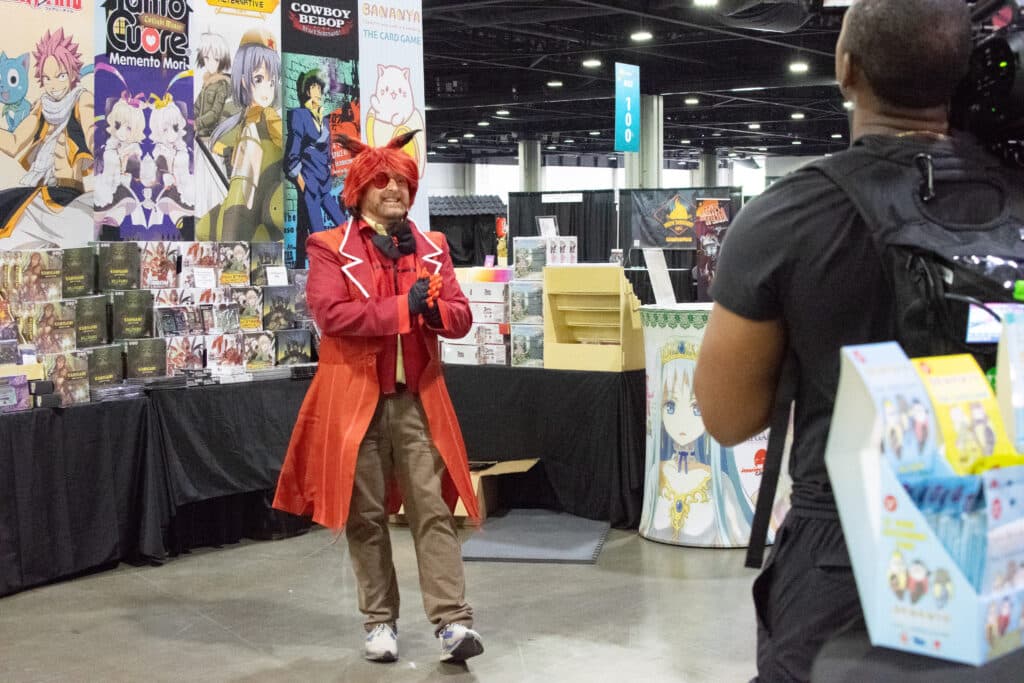
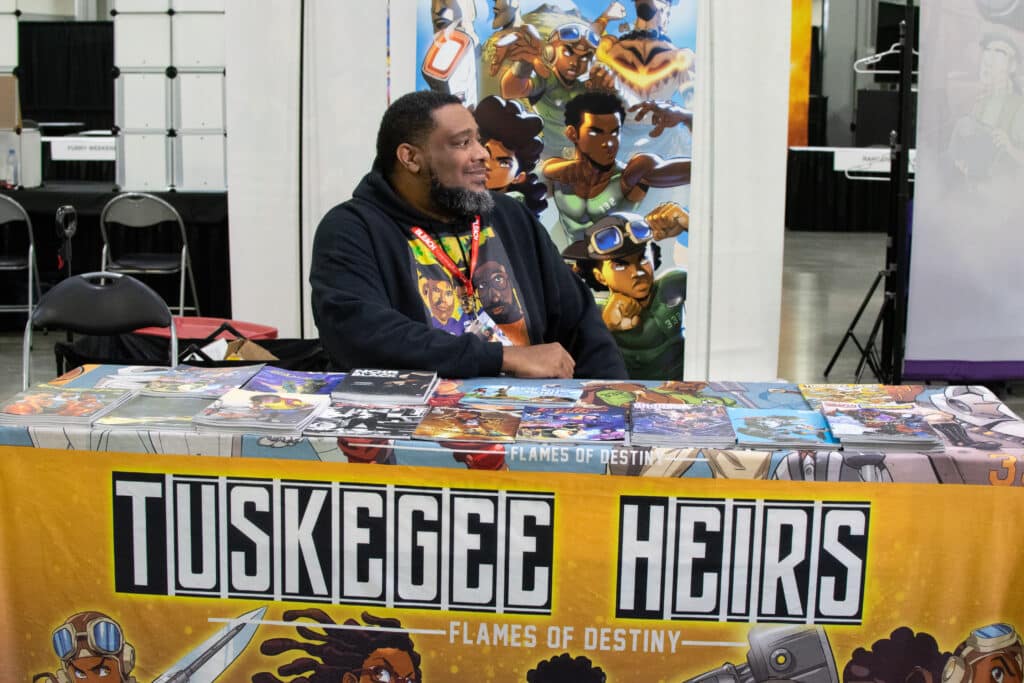


Returning fan favorites include the Artist Alley, Exhibitor’s Hall, panels, raves and afterparties, the cosplay showcase, Disney singing contest and movie screenings.
There’s also a full schedule of workshops, live performances and appearances from over 150 special guests from across industries.
Featured guests
In fact, one of MomoCon’s biggest draws is the celebrity guests on hand each year for autographs and special sessions. A few of this year’s guests include:
Darryl McDaniels (from RunDMC) — a comic book and children’s book author who has also started a line of cookies.
Shadia Amin — a Colombian cartoonist from Atlanta (SCAD grad) currently working on graphic novels.
Greg Burnham — a comic book writer from Norcross who’s created indie comic hits “Tuskegee Heirs,” “The Search For Sadiqah,” “Little Rock Files” and “The Story of Solace.” His most recent is called “Bridges,” a story of four super-powered girls who band together to save Oakland from a group of evil bio-terrorists.
Brian Stelfreeze — comic book artist and an original member of Atlanta’s famed Gaijin Studios. Stelfreeze has worked with Marvel, DC and 12 Gauge comics on titles that include Batman, The Black Panther and Catwoman.
Daron Nefcy — creator and executive producer of Disney’s “Star vs. the Forces of Evil,” Netflix’s “We the People” and Nick’s “Robot and Monster.”
Reed Shannon — Raleigh, NC-based actor and star of Netflix’s “Arcane.”
Mick Wingert — voice actor whose work has appeared in “Arcane,” “What If?,” and “Kung Fu Panda.”
David Vincent — voice actor and producer who’s worked in animation, anime, video games (Resident Evil, Halo, Tekken, Super Street Fighter) and television (“NCIS,” “Criminal Minds,” “The Mentalist”).
Ryō Horikawa — Japanese voice of Vegeta in “Dragon Ball Z,” plus roles in “Saint Seiya” (Andromeda Shun); “Detective CONAN” (Hattori Heiji); and “Mobile Suit Gundam”
Chris Sabat — veteran voice actor, director and producer with a résumé that reads like a list of anime’s greatest hits. From the proud Saiyan prince Vegeta and the stoic swordsman Roronoa Zoro to the world’s greatest hero, All Might, and the slightly tipsy Yami from “Black Clover.”
A full list of 2025 celebrity guests can be found here.
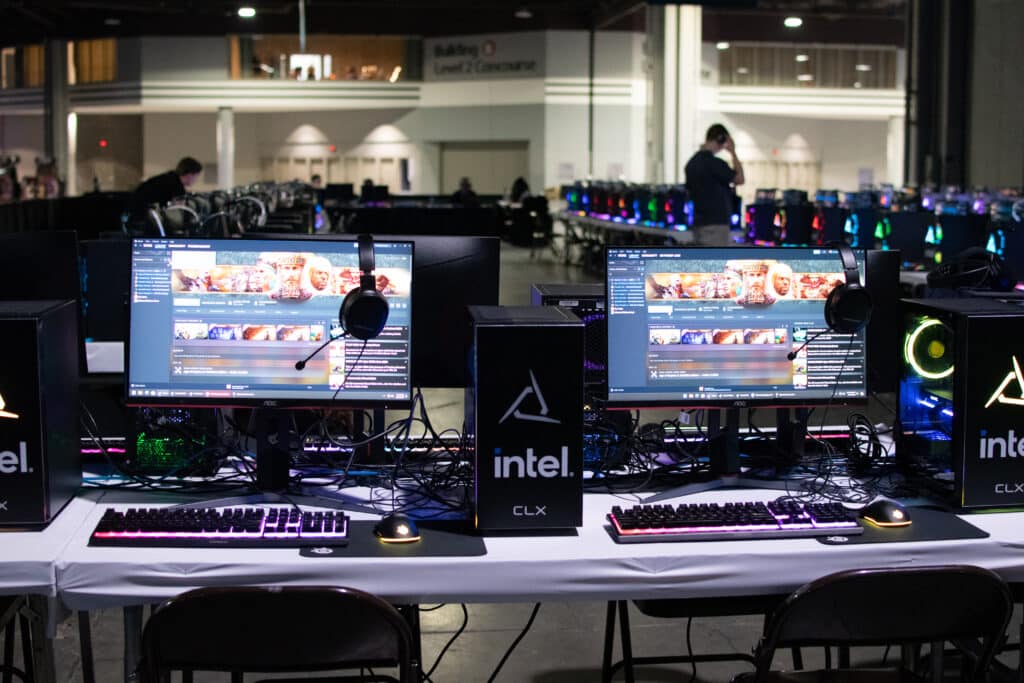


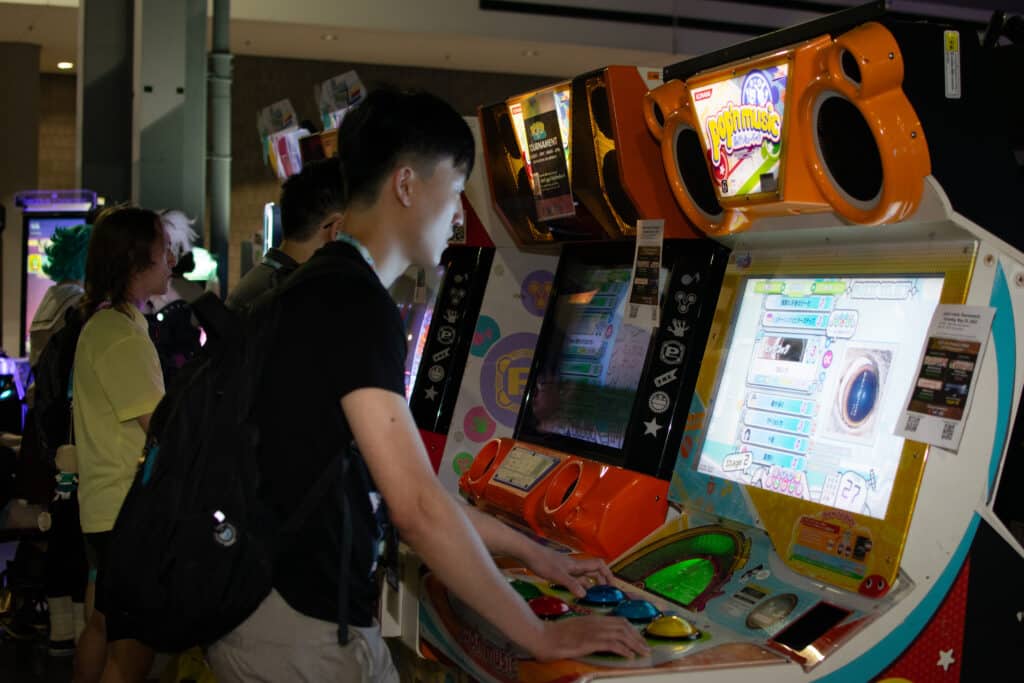


MomoCon by the numbers
- Over the years, MomoCon has grown from a 700 person, on-campus gathering to the largest event in the southeastern U.S. for fans of gaming, animation, cosplay, comics and tabletop games.
- Thousands of attendees come out to each year to enjoy gaming, costuming (cosplay), browsing the huge exhibitor’s hall and meeting celebrity voice talent, designers and writers from their favorite shows, games and comics.
- It features the second largest open game hall in the United States. Open non-stop over the weekend, it spans 300,000+ sq. ft. of arcades, esports stages, PC and LAN gaming, console tournaments and freeplay, board and card gaming, RPGs and LARP.
- More than 90,000 square feet is dedicated to tabletop games, board games, card games, role playing games and miniatures. Want to learn a new game? Instructors are on hand to teach the hottest new games (and old games too).
- There’s also 300,000 square feet for celebrity autographs, vendors, workshops and international and indie game developers.


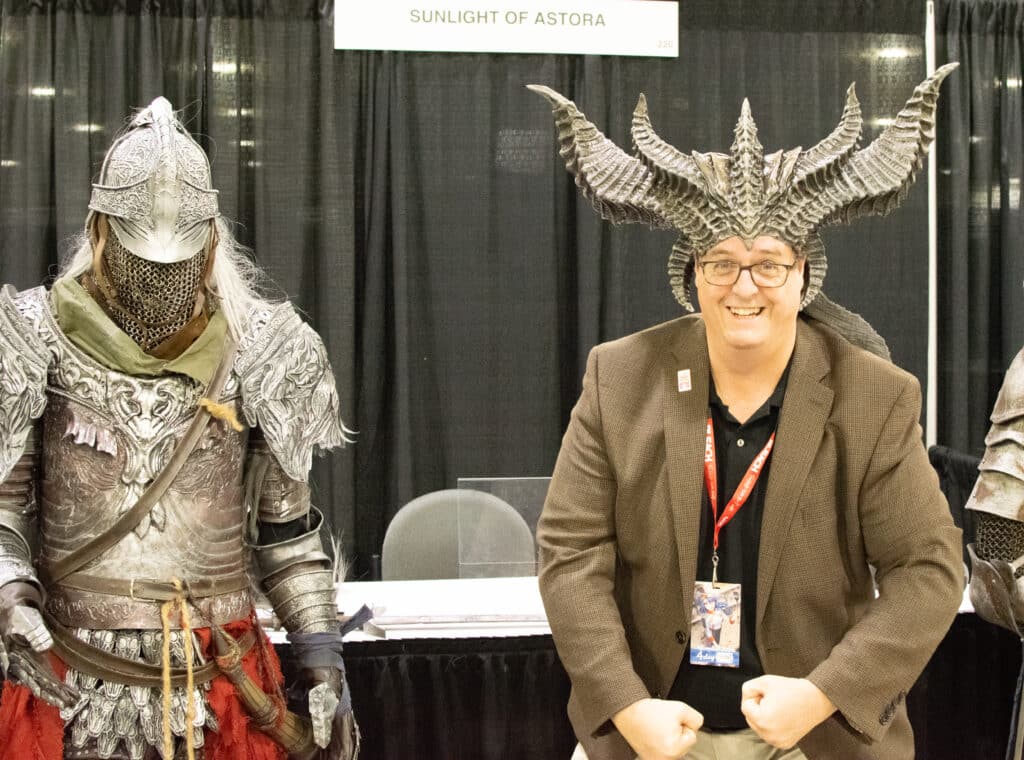
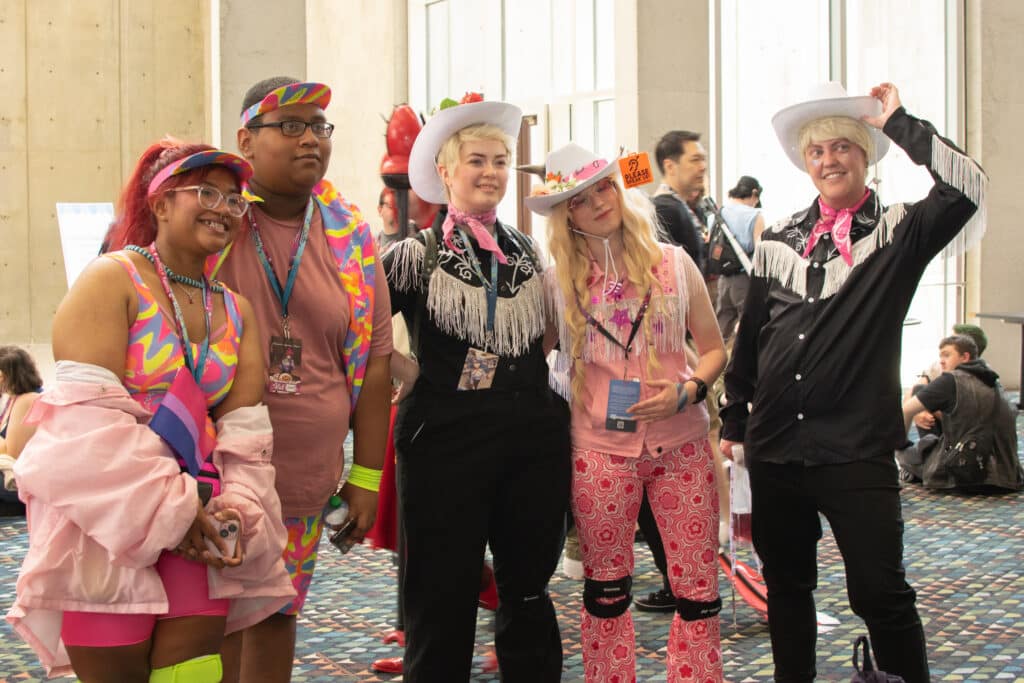


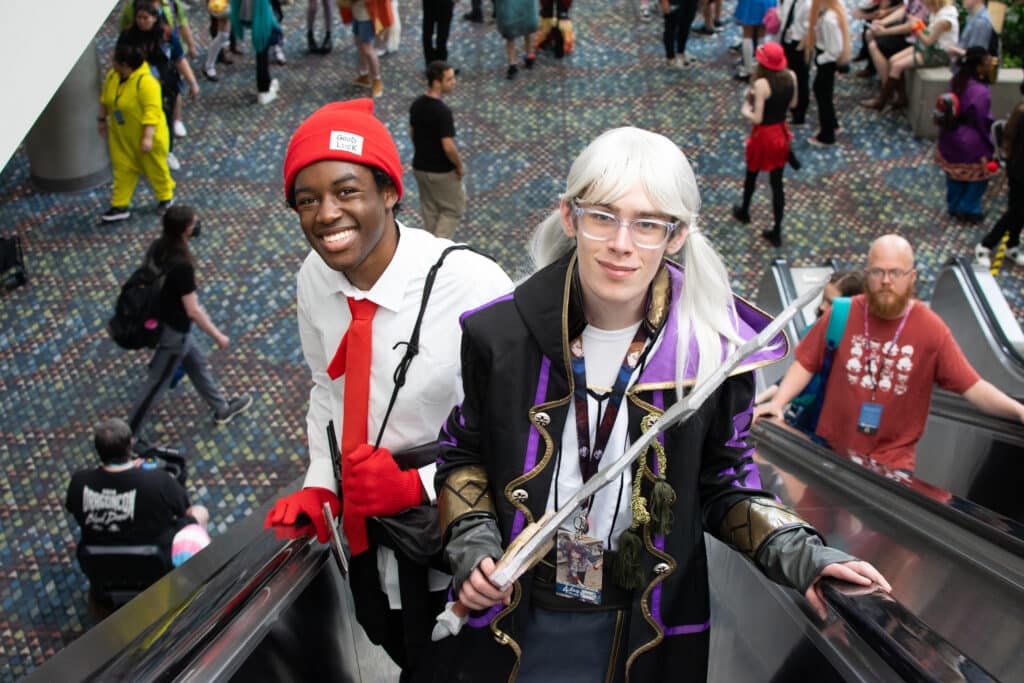
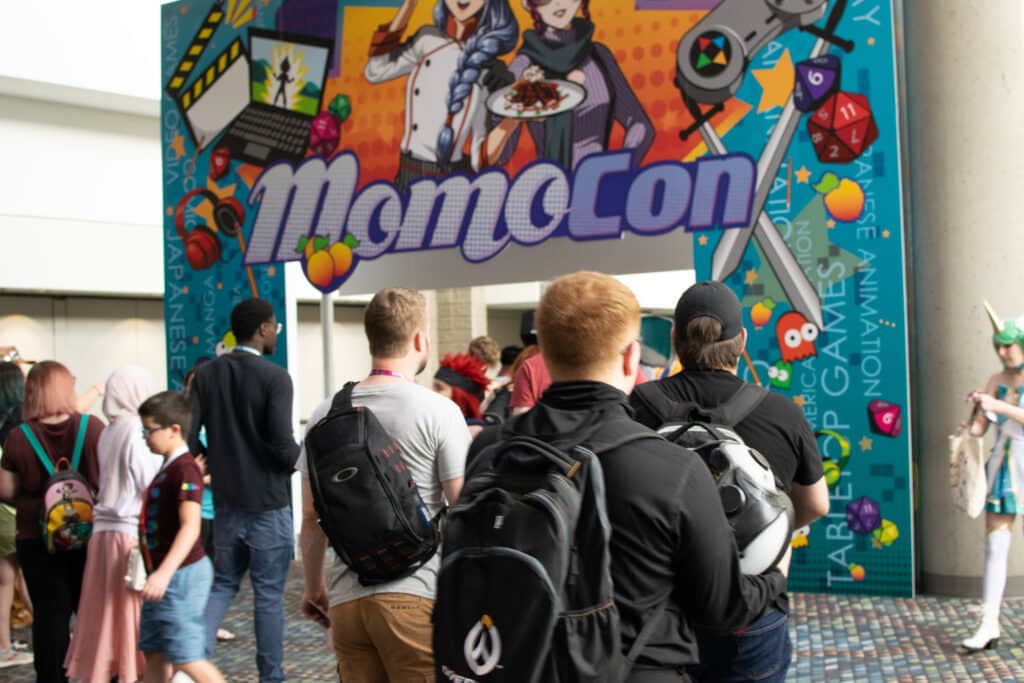
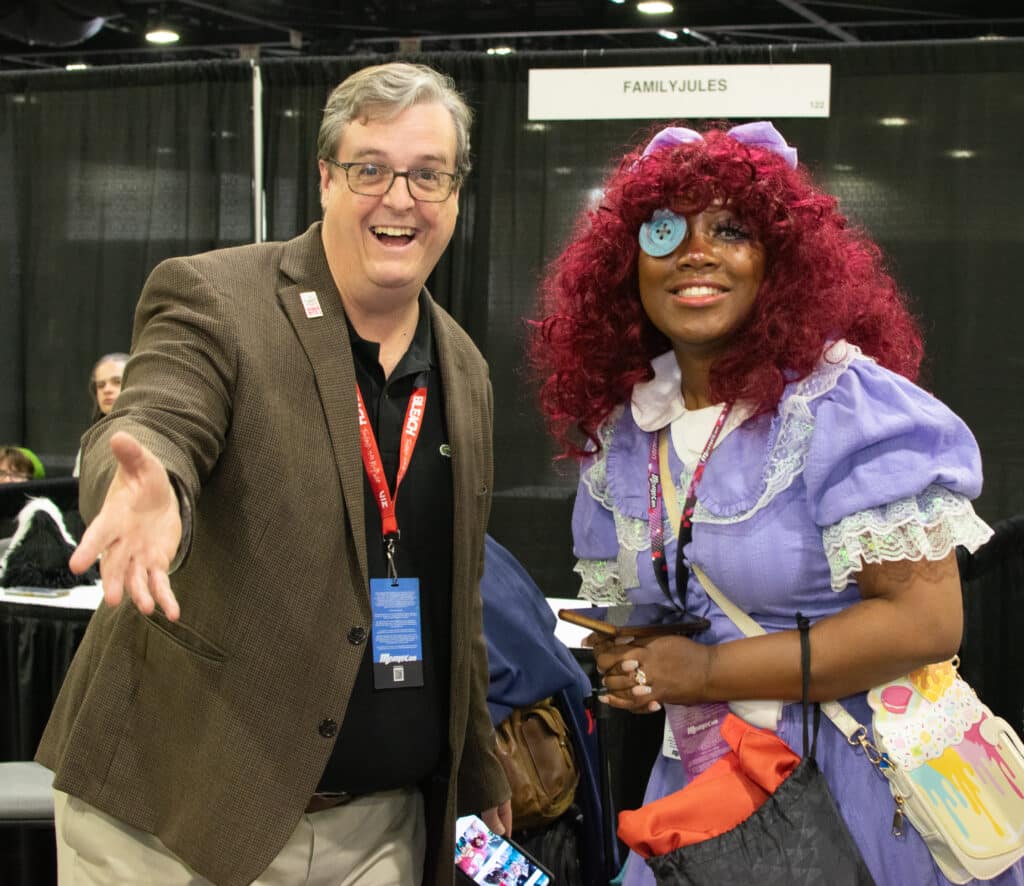
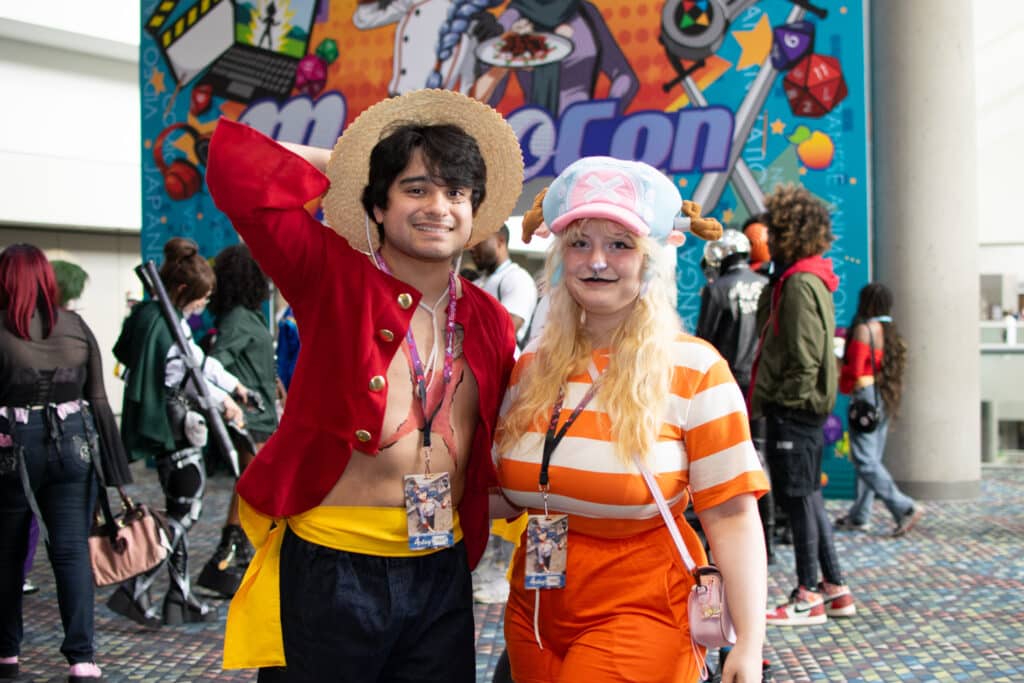

The details
MomoCon runs from 2 p.m. Thursday, May 22 through 5 p.m. Sunday, May 25 at the Georgia World Congress Center (Hall B). Additional events may take place at the nearby Omni Hotel and the Hilton Signia Downtown.
Registration is open now, with four-day or single day passes available. Four-day membership passes are $105 plus fees. Single days range from $50–$65 (kids 9 and under free).
Game tournament registration and separate concert tickets are also available.
Parking is limited in the area, and the GWCC lots do not take same-day reservations, so attendees are encouraged to take MARTA, if possible. The GWCC station is a short walk to the convention center.
You’ll find full details and a schedule of planned events at momocon.com.
Related
Around Atlanta
Mike Schleifer to Leave Alliance for Lincoln Center Theater
Published
2 months agoon
March 26, 2025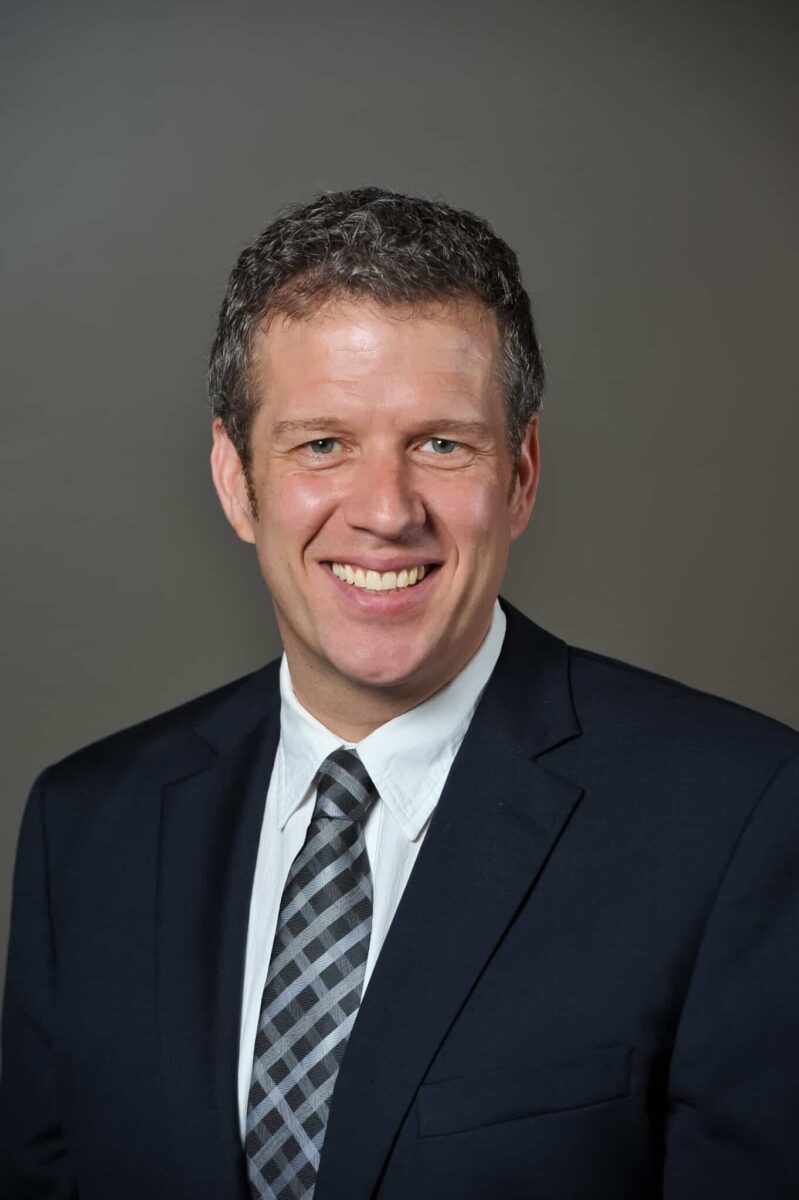
After leading Atlanta’s Alliance Theatre through two major renovation projects, a global pandemic and more than 100 productions over 11 years, Managing Director, Mike Schleifer, will leave the Alliance at the end of the year to become the managing director of Lincoln Center Theater in New York.
As managing director of the Alliance, Schleifer oversees all operational, marketing, financial, fundraising and shared services activities. In his new role, Schleifer will oversee LCT’s financial and operational health and ensure long-term sustainability and growth. He will also work to align strategic planning with artistic goals, manage the theater’s union relationships, lead budgeting, marketing and capital planning efforts and identify and develop new revenue opportunities.
“While it’s rare to find a managing director who is equally brilliant at the operational and financial part of the job, it’s simply unheard of to find one who excels on those fronts and leads with such unabashed heart, vision and humor,” said Jennings Hertz Artistic Directors Tinashe Kajese-Bolden and Christopher Moses in a joint statement.
“For the past 11 years, we had the unfathomably good fortune to have all that and more in Mike Schleifer. Mike’s willingness to bet on our mission and invest in the extraordinary talent of the Alliance staff allowed us to realize aspirational dreams we never would have dared to dream without his encouragement and faith. We’ll miss him daily but cannot wait to witness the joy he’ll bring to the Lincoln Center Theater.”
During his tenure
During his tenure with the Alliance, Schleifer led the administrative and producing teams on over 100 productions and moved four shows to Broadway, including last season’s “Water for Elephants” and this season’s “Maybe Happy Ending.”
He spearheaded the $36 million renovation of the award-winning Coca-Cola Stage and is currently leading the $26 million renovation of the Goizueta Stage for Youth and Families. Under his leadership, the Alliance more than doubled its operating budget, tripled its endowment and continued to lead the country in work developed for young audiences.
“It’s been a true honor and privilege to work, lead and learn at the Alliance Theatre for the last eleven years,” said Schleifer. “I’m deeply grateful to the staff, artists and audiences of the Alliance Theatre and Woodruff Arts Center who have made this journey so rewarding.”
“We’ve achieved remarkable milestones — from moving productions to Broadway to completing transformative capital projects,” he continued. “I’m excited for what’s next, but I won’t be leaving until we cut the ribbon on the new Goizueta Stage for Youth and Families — a project that reflects the Alliance’s deep commitment to the next generation of theatergoers, both with the physical theater space and with the endowment we’re raising to make the work on that stage financially accessible for all.”
Additional roles
In addition to his work at the Alliance, Schleifer serves on the boards of the League of Resident Theatres and True Colors Theatre Company. In 2018 he co-founded Volute Partners, a theatre consultancy focused on capital projects and the subsequent operational support and budgets needed to sustain them.
“We are immensely grateful for Mike’s leadership and tireless dedication to the Alliance Theatre. His vision, passion, and expertise have left an indelible mark on this organization,” said Hala Moddelmog, president and CEO of Woodruff Arts Center.
“We take great pride in seeing him step into this well-deserved opportunity, knowing he will make a lasting impact at Lincoln Center Theater.”
New leadership
The leadership of the Woodruff Arts Center, with support from members of the Alliance Theatre Board of Directors, will conduct a national search for the Alliance’s next managing director, led by executive search firm, Corps Team.
“On behalf of the Alliance’s board of directors, we want to thank Mike for more than a decade of service to the Alliance and Atlanta community,” said Kendrick Smith, Alliance Theatre Board of Directors chair. “He oversaw a period of unprecedented growth with a spirit of collaboration and unwavering commitment to the theater’s artistic vision.”
“As we begin the national search for his successor, we remain dedicated to the theater’s mission of expanding hearts and minds, on stage and off.”
About the Alliance Theatre
Founded in 1968, Alliance Theatre is the leading producing theater in the Southeast, reaching more than 165,000 patrons annually.
The Alliance is led by Jennings Hertz Artistic Directors Tinashe Kajese-Bolden and Christopher Moses and Managing Director Mike Schleifer and is a recipient of the Regional Theatre Tony Award® for sustained excellence in programming, education and community engagement.
In January 2019, the Alliance opened its new, state-of-the-art performance space, The Coca-Cola Stage at Alliance Theatre.
Known for its high artistic standards and national role in creating significant theatrical works, the Alliance has premiered more than 140 productions, including eleven that have transferred to Broadway.
Additionally, the Alliance education department reaches more than 90,000 students annually through performances, classes, camps and in-school initiatives designed to support teachers and enhance student learning.
The Alliance Theatre values community, curiosity, collaboration and excellence and is dedicated to representing Atlanta’s diverse community with the stories they tell, the artists, staff and leadership they employ and the audiences they serve.
For more information, visit alliancetheatre.org.
Related
Around Atlanta
Fantastical Creatures in Fernbank’s WildWoods
Published
3 months agoon
March 5, 2025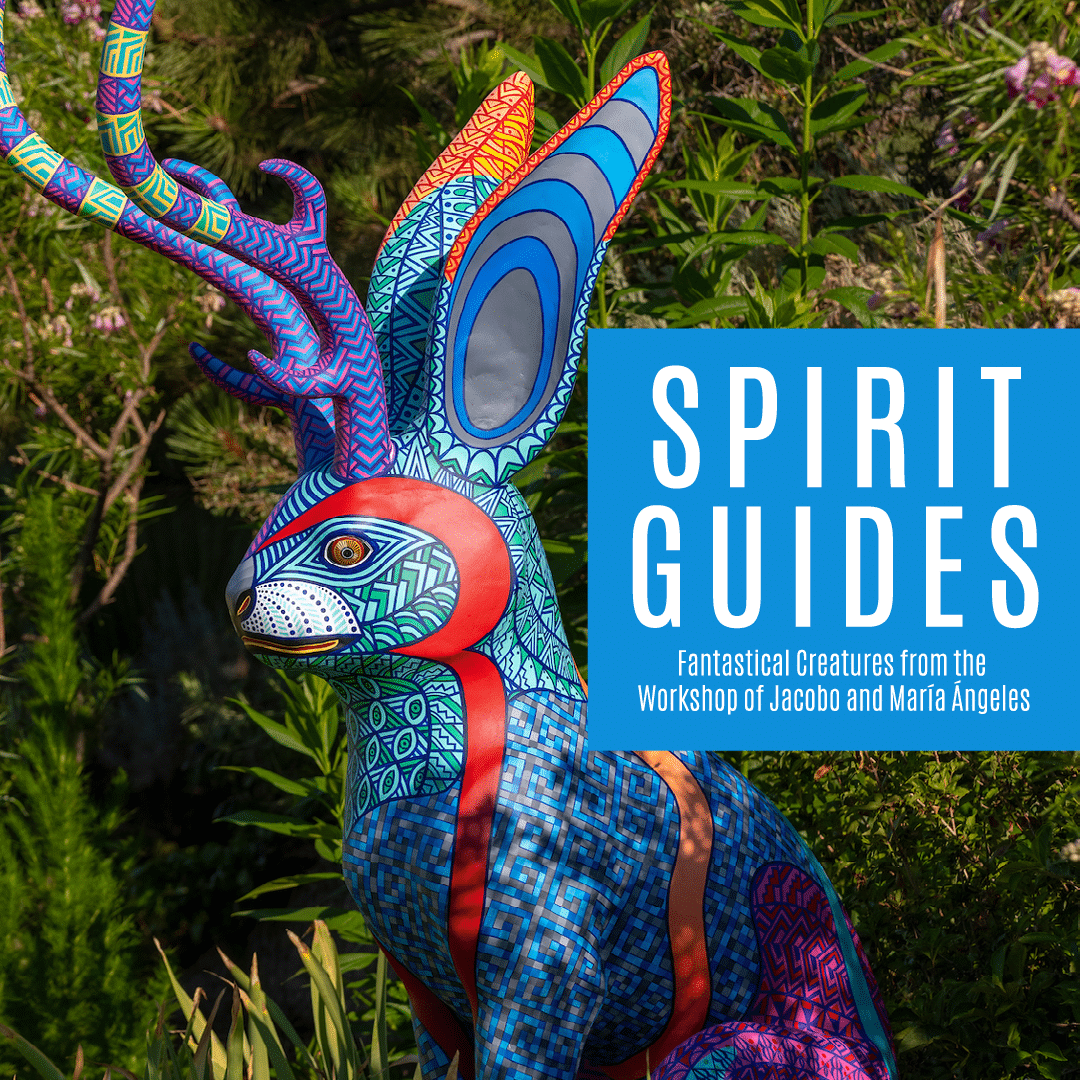
Encounter mythical creatures in a natural landscape when “Spirit Guides: Fantastical Creatures from the Workshop of Jacobo and María Ángeles” opens March 29.
Immerse yourself in a breathtaking outdoor exhibit that intertwines Mexican cultures and contemporary art when “Spirit Guides: Fantastical Creatures from the Workshop of Jacobo and María Ángeles” opens at Fernbank Museum.
From March 29 to August 3, guests can enter a supernatural world as they walk alongside towering, brightly colored and richly patterned sculptures in the natural landscape of Fernbank’s WildWoods.
Presented in both English and Spanish, this collection of brightly-colored fiberglass sculptures depicts imaginary hybrid animals and offers visitors an unparalleled journey into an imaginative take on the spiritual landscape of southern Mexico’s Indigenous traditions.
Inspiration and legend
In creating “Spirit Guides,” artists Jacobo and María Ángeles were inspired by an ancient Zapotec stone calendar. Indigenous to southern Mexico, Zapotec culture is deeply connected to plants, seasons and animals.
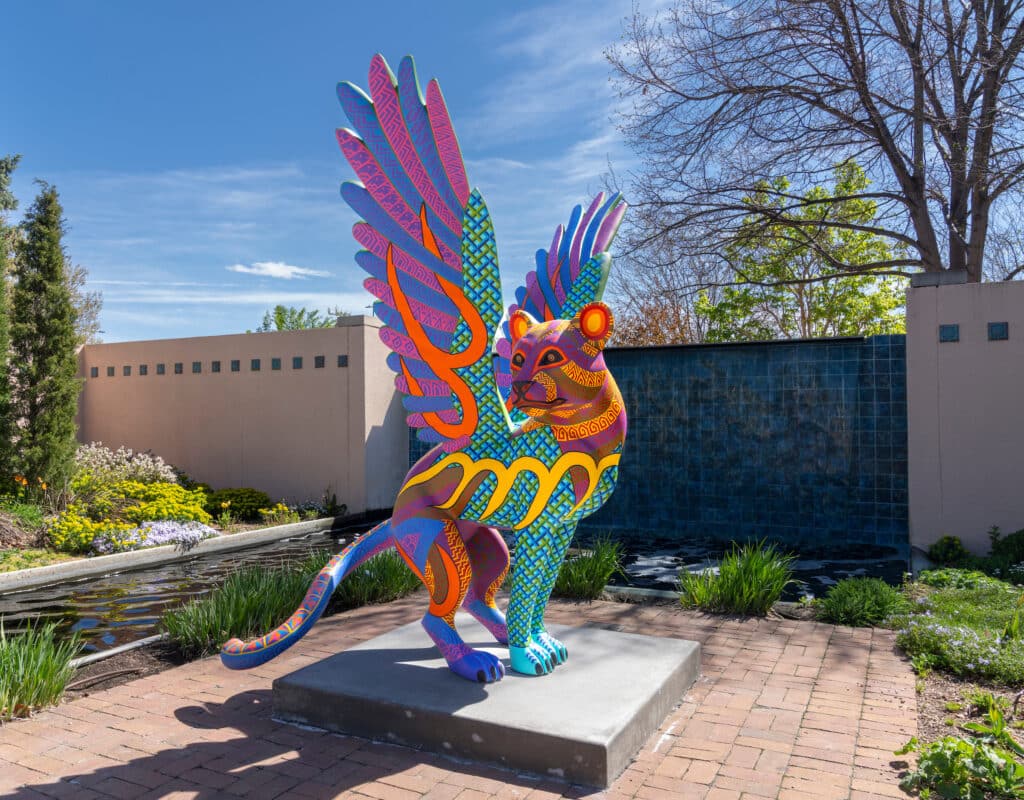
“Spirit Guides” beckons visitors to travel into the spiritual landscape of Mexico’s Indigenous traditions through these animal sculptures that act as both spirit guides and astrological embodiments of human character.
Some of the hybrid animals depicted include a combination of a deer-butterfly or a coyote-fish. These larger-than-life sculptures depict patterns and designs that symbolize different aspects of Zapotec life and culture, such as happiness, fertility and community.
The artists have previously stated that, according to a Zapotec legend, when you are born an animal comes to you to serve as your protector in this world. This animal is your tona, a being that shares your destiny and soul.

Along with your tona, you also have a nahual, which is assigned based on the year of your birth. This spirit animal embodies characteristics that mirror your own personality.
As guests stand before the sculptures in WildWoods — some of which stand nearly 8 feet tall and 9 feet wide — they are made conscious of the profound connection between the natural and cosmological worlds.
About the Artists
Jacobo and María Ángeles are a married artist team based in Oaxaca, Mexico.
Joyful, fanciful and distinctively patterned, the Ángeles’ animal sculptures embrace both contemporary art and folk-art traditions. They employ and teach more than 100 artisans in their workshop, which has created artworks shown in museums around the world.
Exhibit details
By drawing inspiration from the Zapotec calendar and their own imaginations, the Ángeles team sculpted their own mythical creations.
This exhibit features eight towering, vibrant fiberglass sculptures of hybrid animals, intersecting art, mythology and identity. The sculptures were designed through a multi-step process that included conceptual sketches, small wooden renderings and papier mâché molds before casting the fiberglass.
A team of artisans then helped to paint the sculptures with striking colors and intricate geometric patterns inspired by Zapotec and other Indigenous designs, each with their own unique meaning.
Organized by Denver Botanic Gardens, “Spirit Guides: Fantastical Creatures from the Workshop of Jacobo and María Ángeles” is on view from March 29 – August 3, 2025. The exhibit is included with General Admission at Fernbank Museum and is free with CityPASS.
It will also be on view select nights when the museum is open, including during Fernbank After Dark and Fernbank … but Later.
For more information, please visit fernbankmuseum.org.
Related
Read the Digital Edition
Subscribe
Keep Up With Peachtree Corners News
Join our mailing list to receive the latest news and updates from our team.
You have Successfully Subscribed!

Peachtree Corners Hosts Discussion About the Future of Local Policing

D1 Training Brings New Fitness Concept to Peachtree Corners

MomoCon 2025 to bring 60,000 Fans to Atlanta for a Weekend of Cosplay, Animation, Gaming and Music

Atlanta’s Dog Howl-O-Ween Festival Moving to Peachtree Corners for 2025

City of Peachtree Corners Awarded Certificate of Achievement From GFOA for Seventh Straight Year

Local Special Olympics Pickleball Team Honored with State House Resolution

From Boardrooms to the Himalayas: Vandana’s Journey to Purpose and Growing with Intention [Podcast]

Brandon Branham Honored for Transformative Leadership in Peachtree Corners

Music Matters Productions Expands Peachtree Corners Headquarters

Brandon Branham Honored for Transformative Leadership in Peachtree Corners

From Boardrooms to the Himalayas: Vandana’s Journey to Purpose and Growing with Intention [Podcast]

MomoCon 2025 to bring 60,000 Fans to Atlanta for a Weekend of Cosplay, Animation, Gaming and Music

Local Special Olympics Pickleball Team Honored with State House Resolution

Atlanta’s Dog Howl-O-Ween Festival Moving to Peachtree Corners for 2025

D1 Training Brings New Fitness Concept to Peachtree Corners

Peachtree Corners Hosts Discussion About the Future of Local Policing

Light up the Corners [Video]

Capitalist Sage: Business Leadership in Your Community [Podcast]

Cliff Bramble: A Culinary Adventure through Italy

Top 10 Brunch Places in Gwinnett County

A Hunger for Hospitality

THE CORNERS EPISODE 3 – BLAXICAN PART 1

Top 10 Indoor Things To Do This Winter

The ED Hour: What it takes to Remove Barriers from Education

Peachtree Corners Life
Topics and Categories
Trending
-
Business2 days ago
From Boardrooms to the Himalayas: Vandana’s Journey to Purpose and Growing with Intention [Podcast]
-
City Government2 days ago
Brandon Branham Honored for Transformative Leadership in Peachtree Corners
-
Business19 hours ago
Music Matters Productions Expands Peachtree Corners Headquarters







